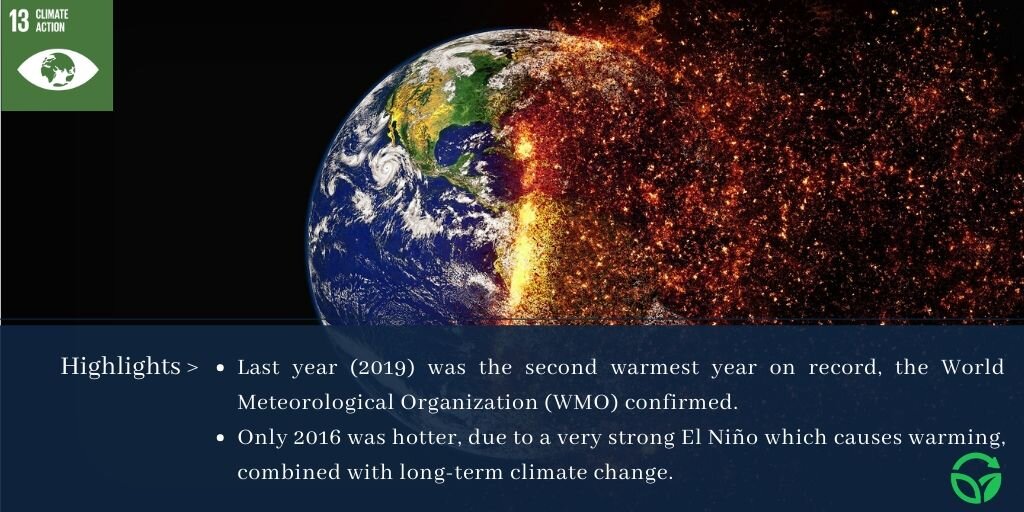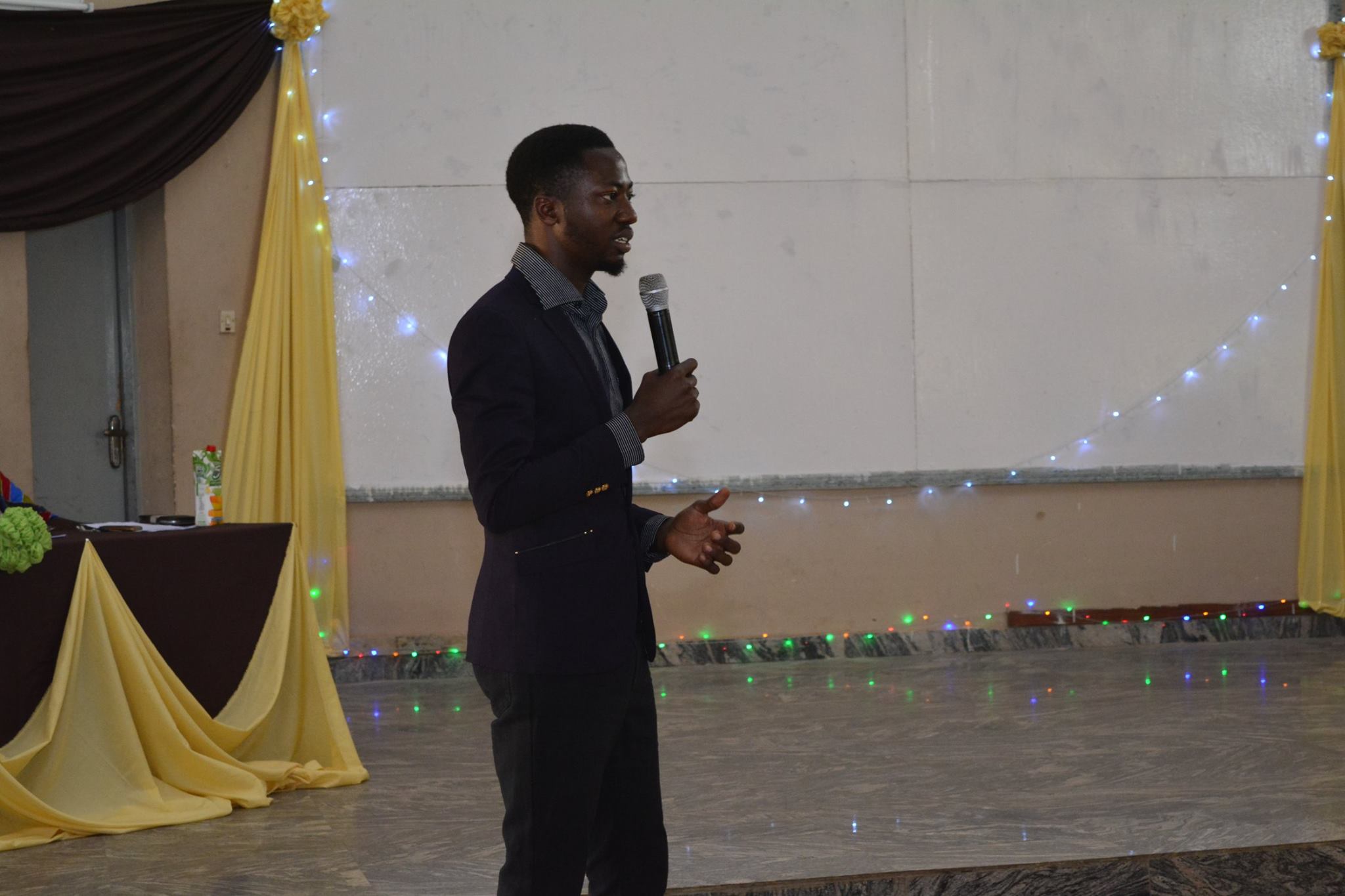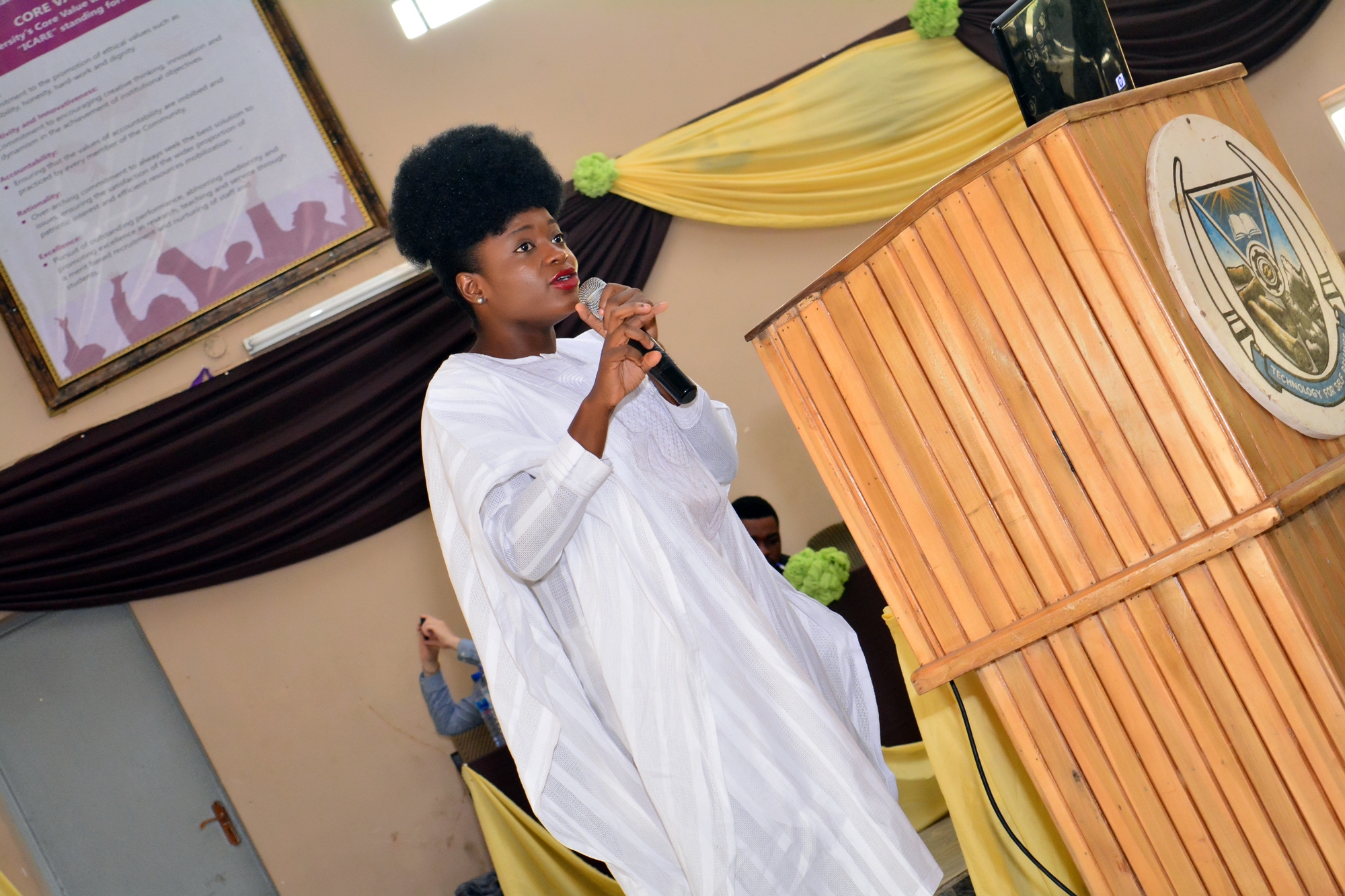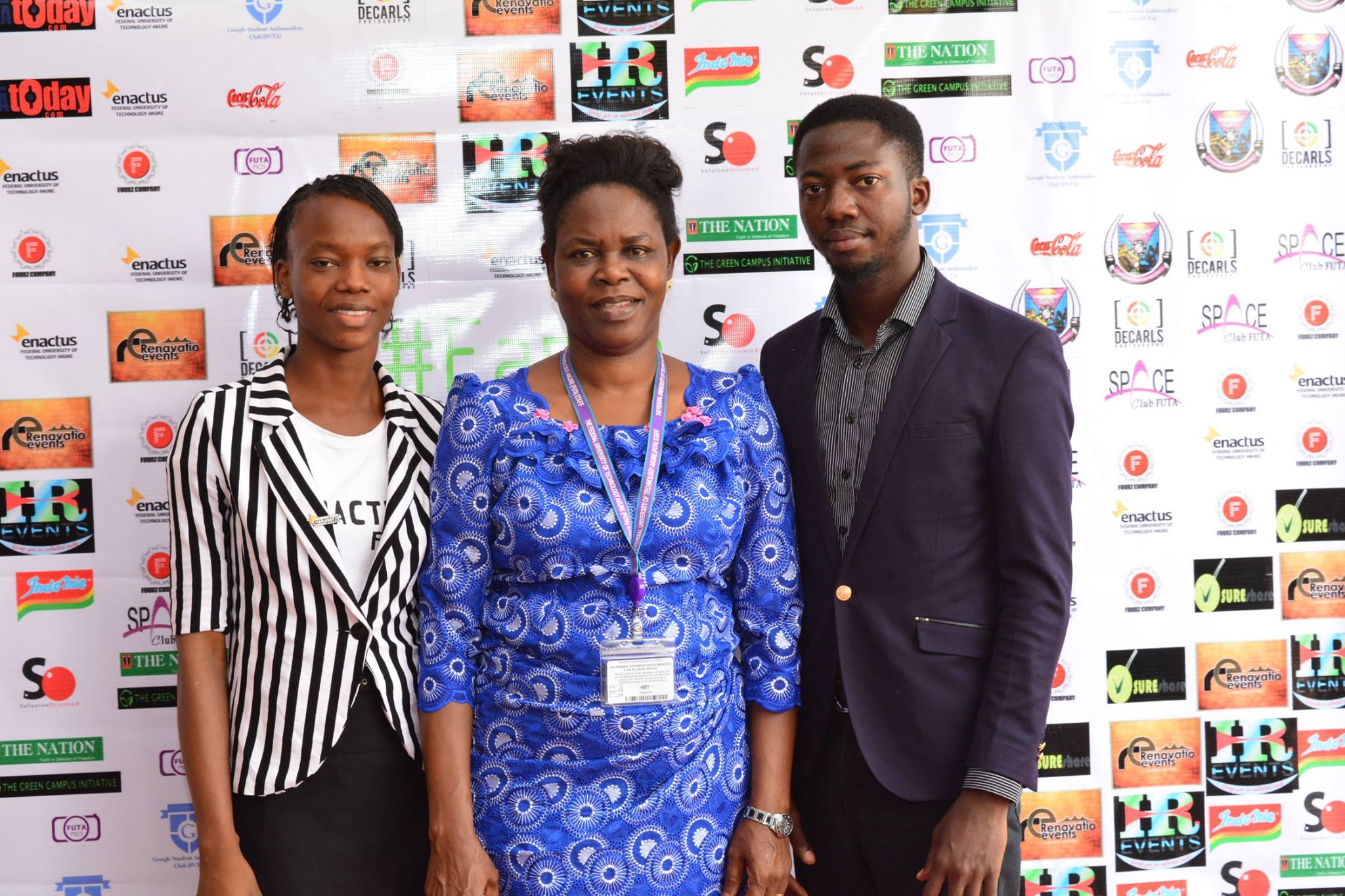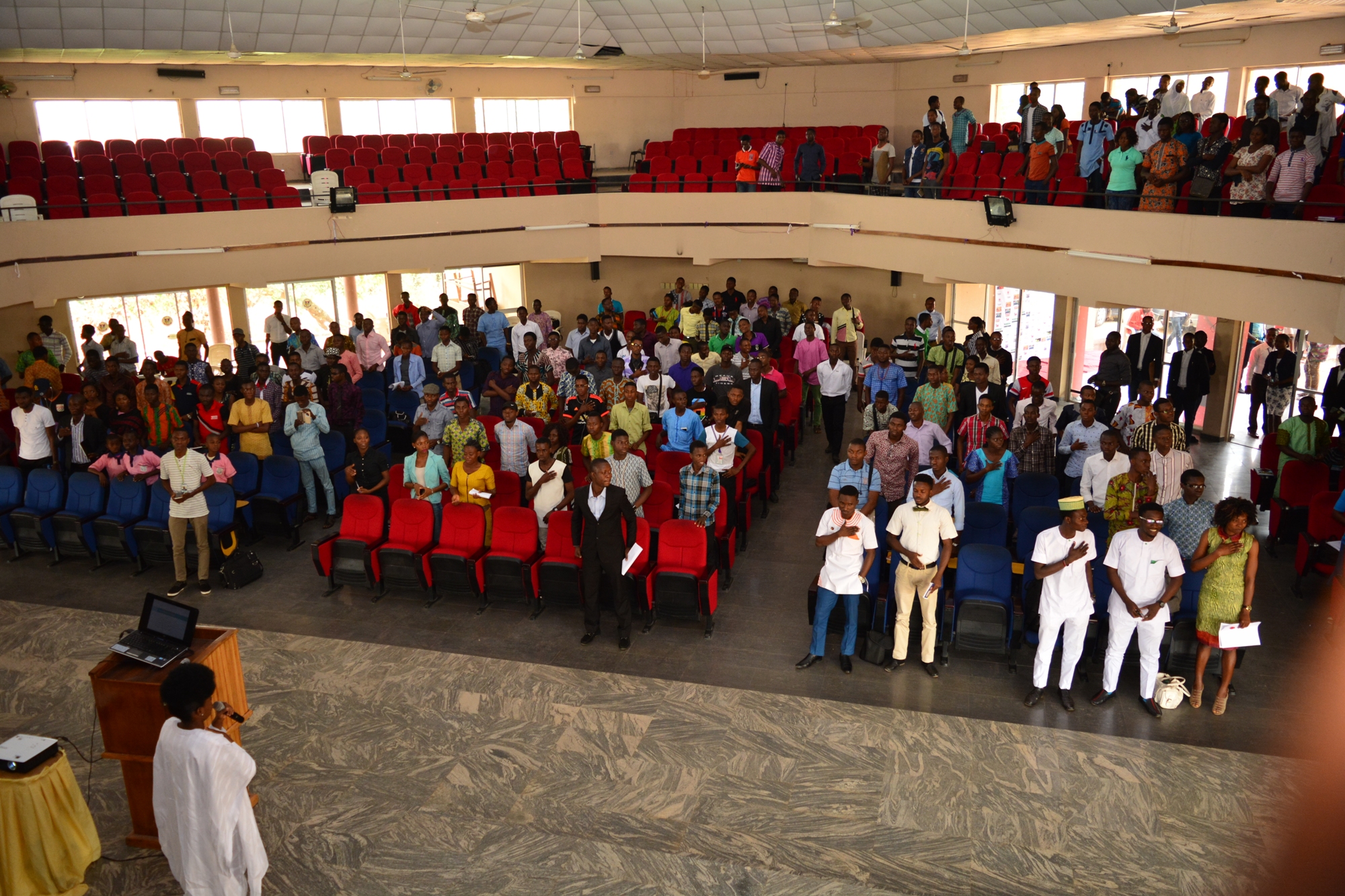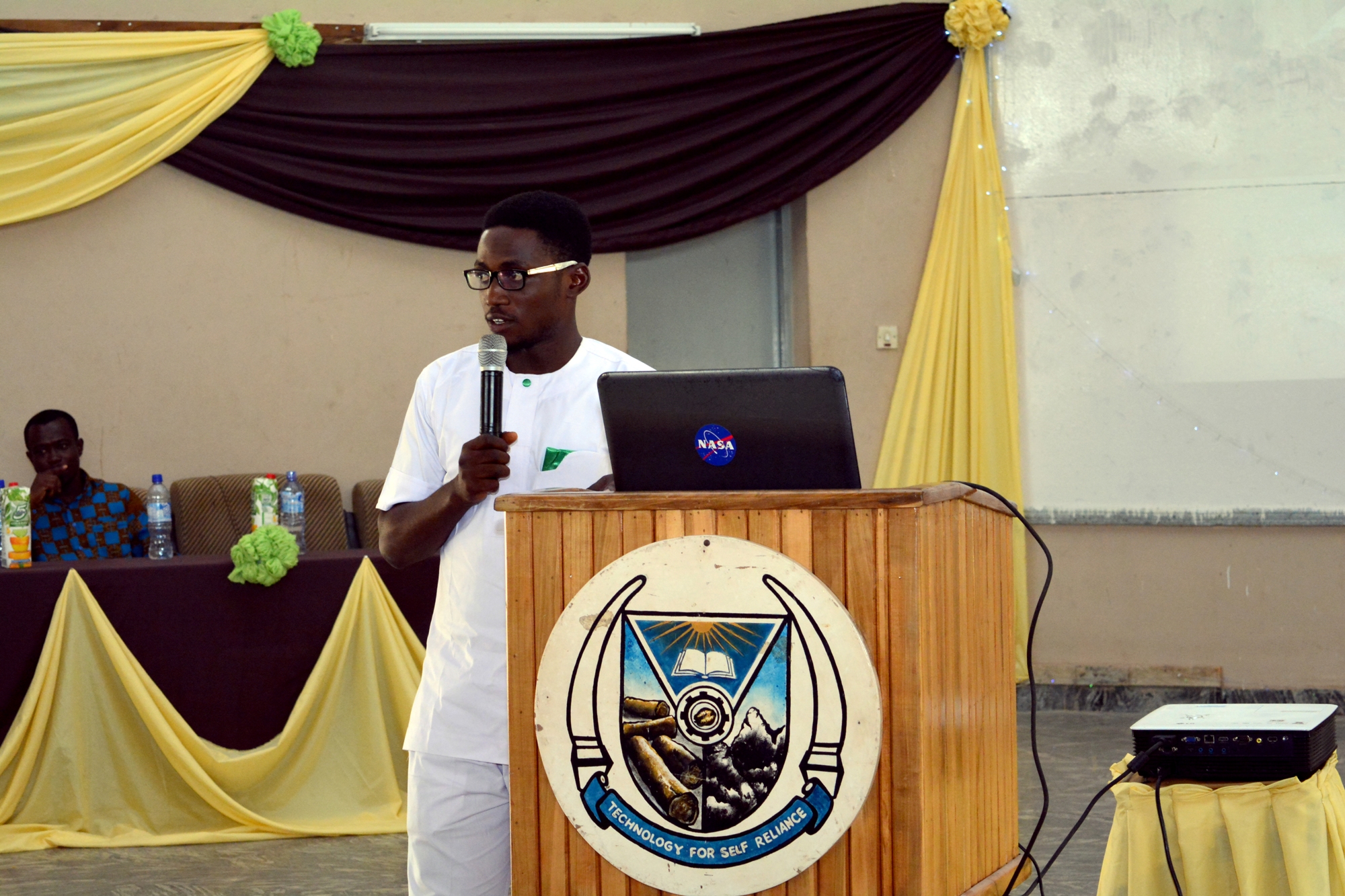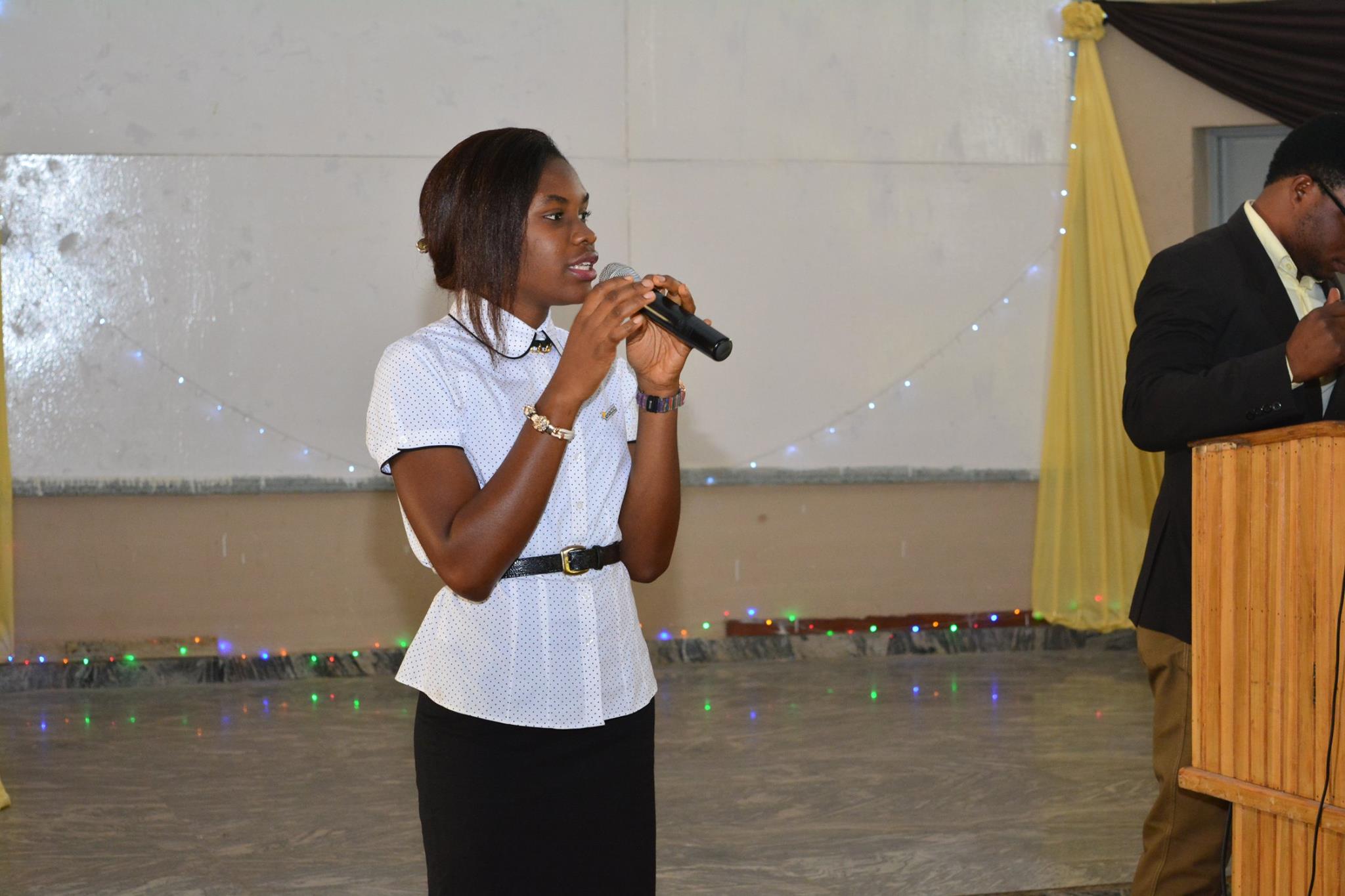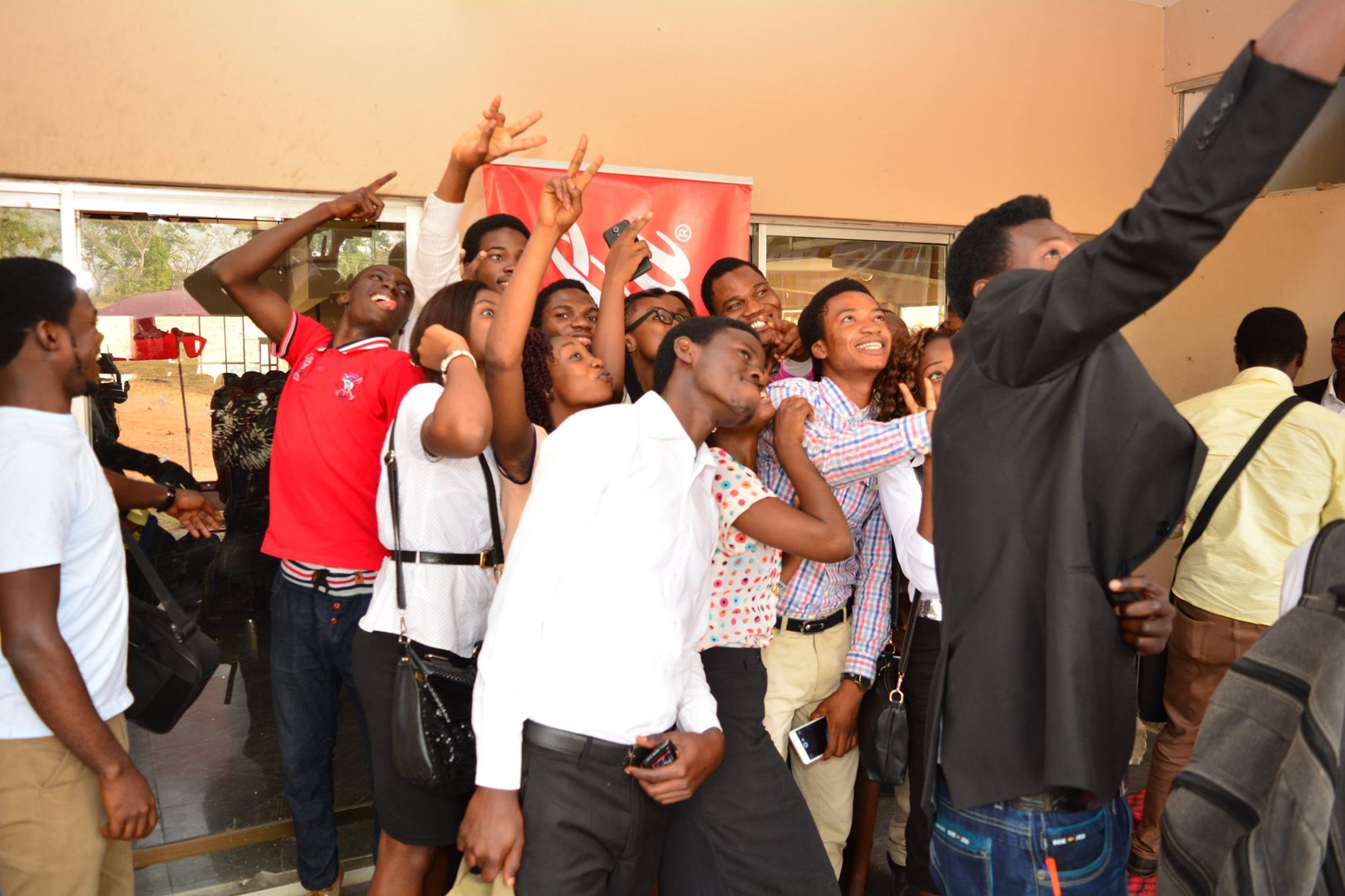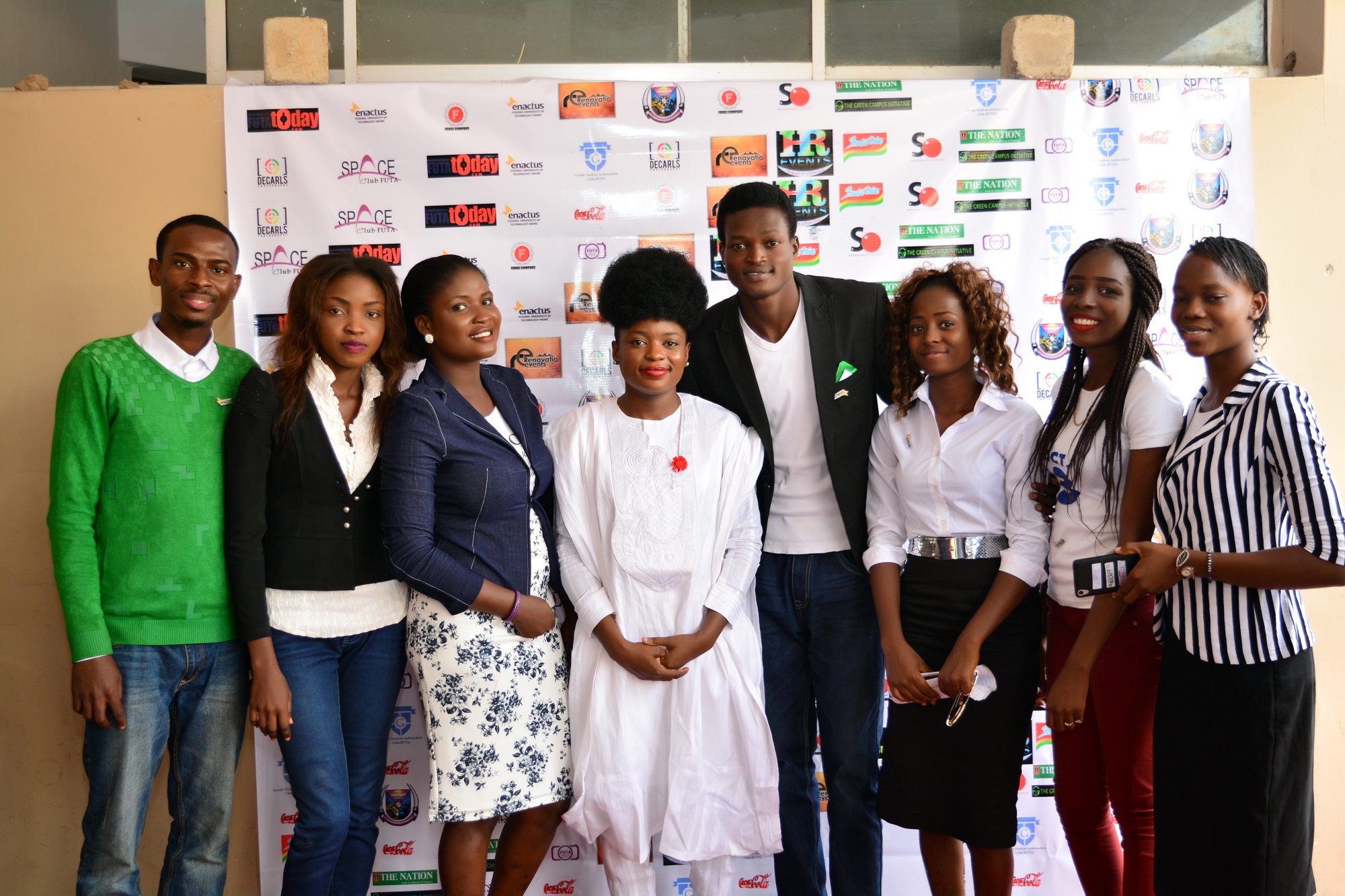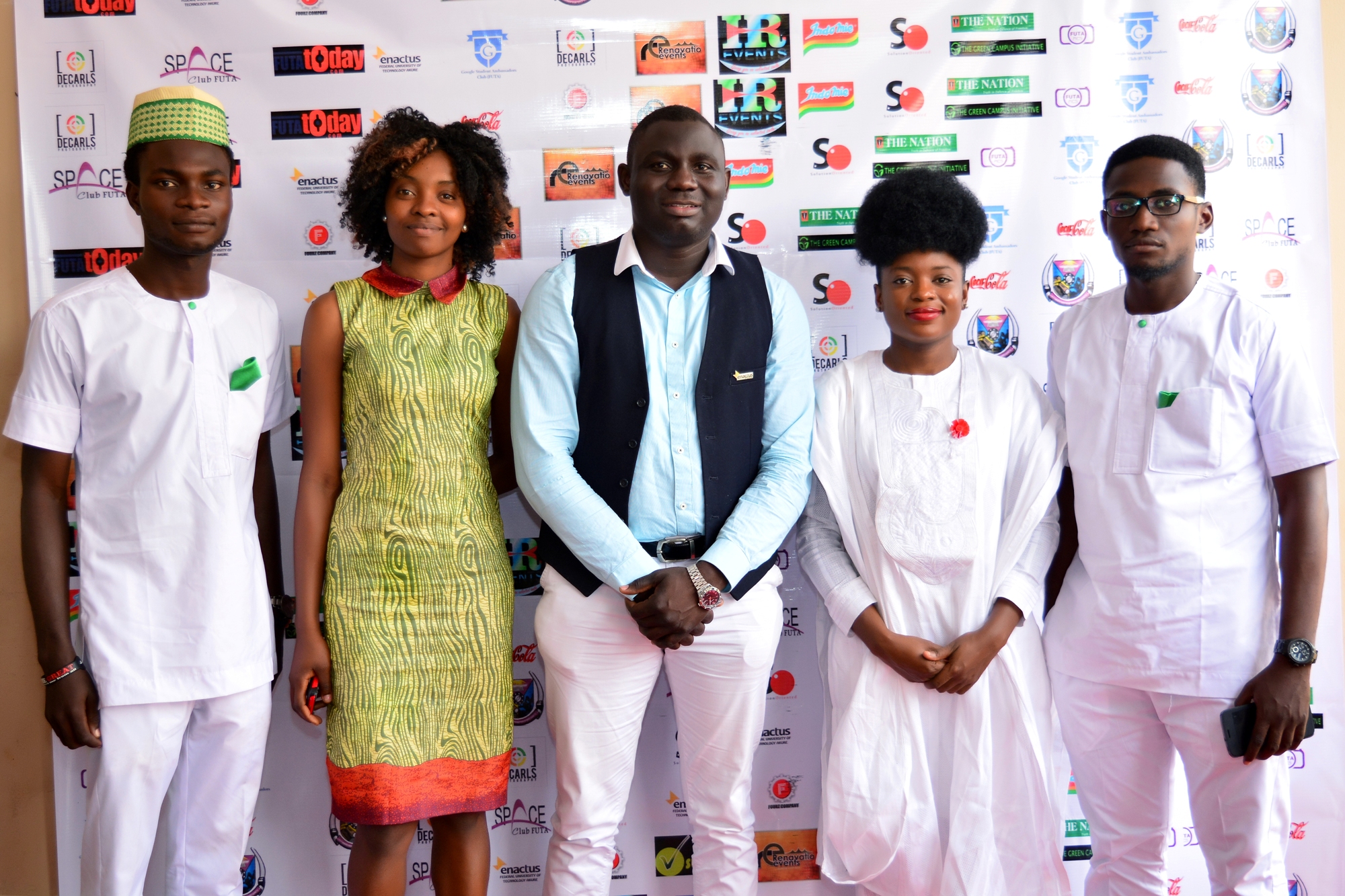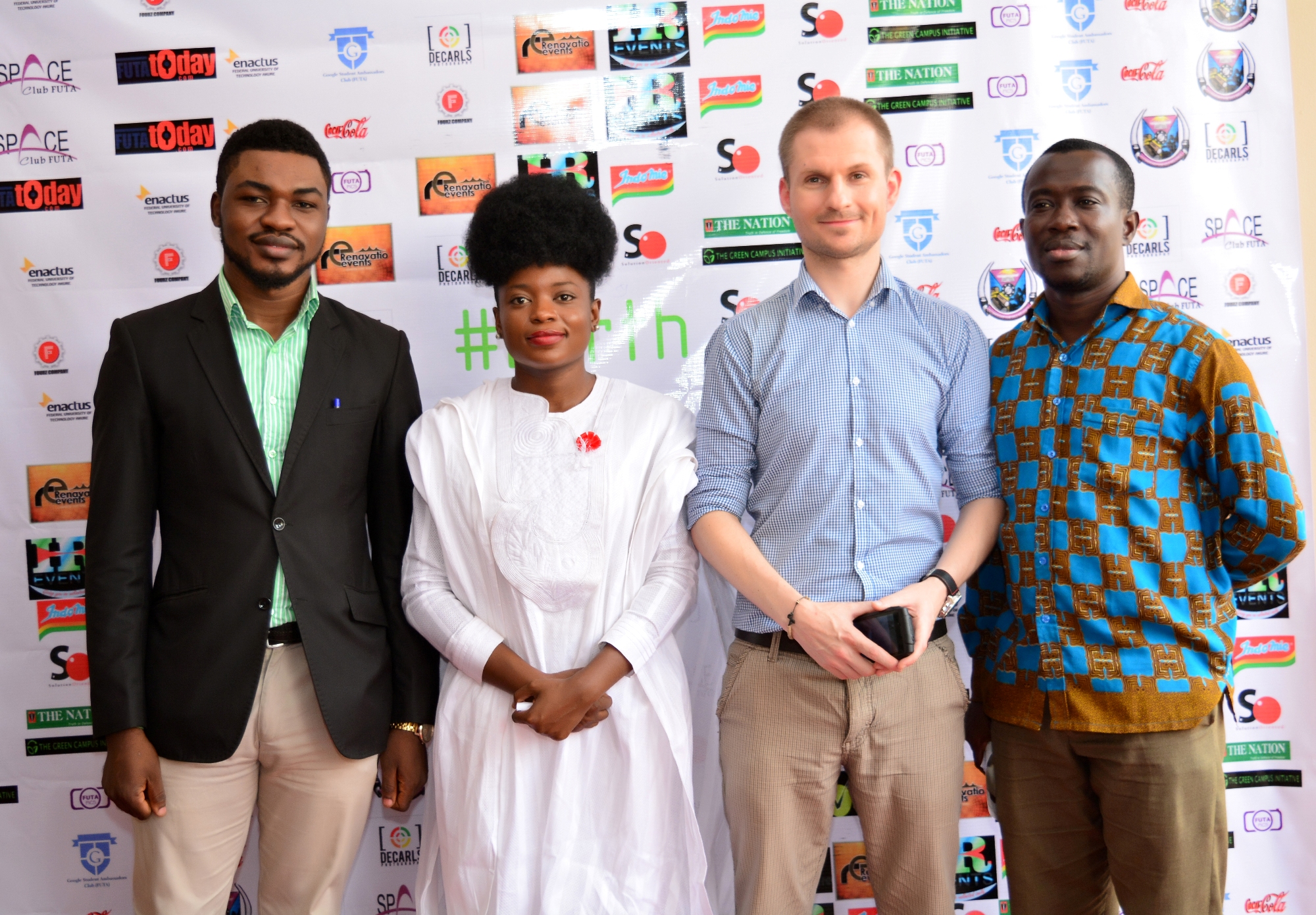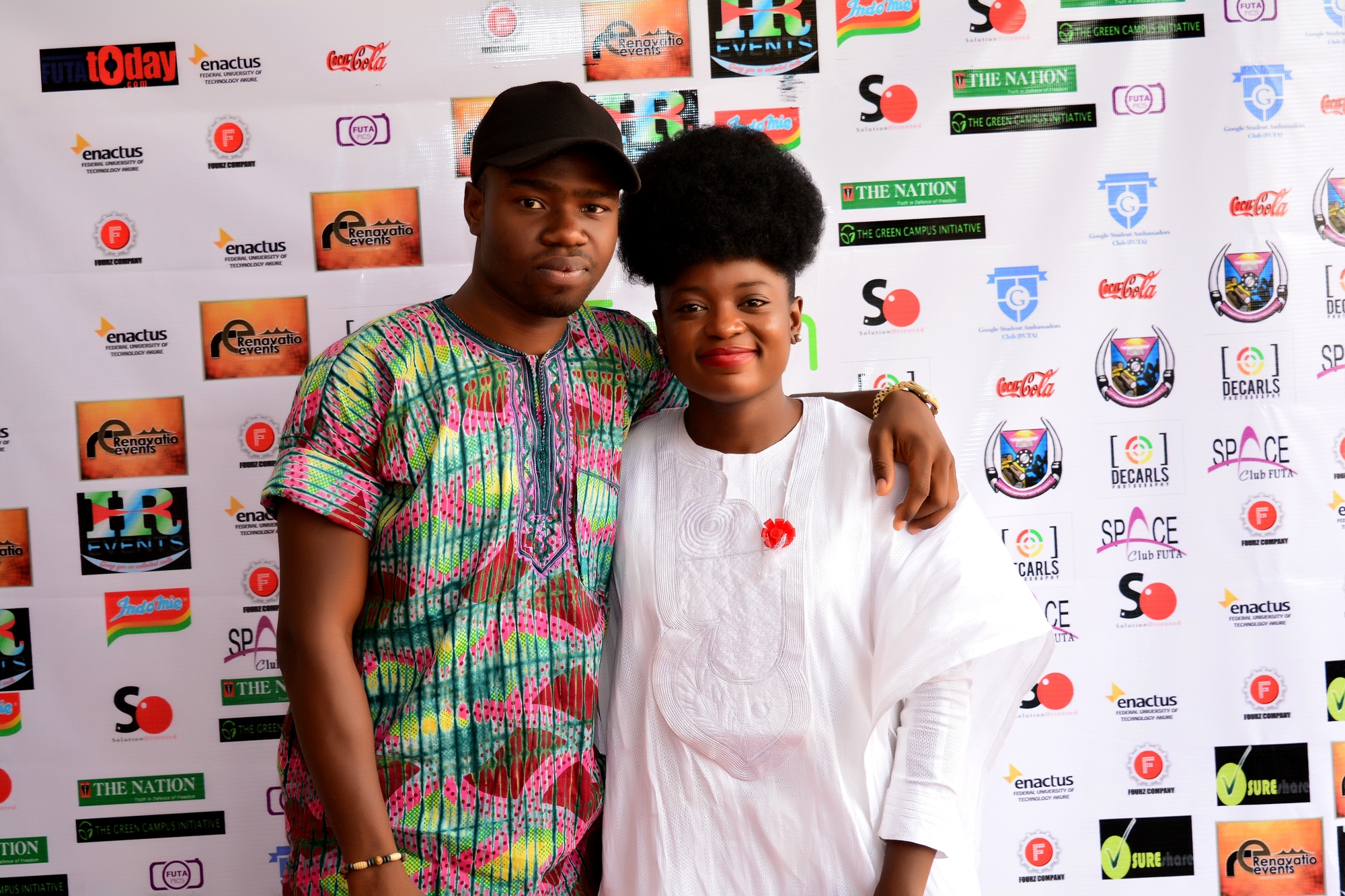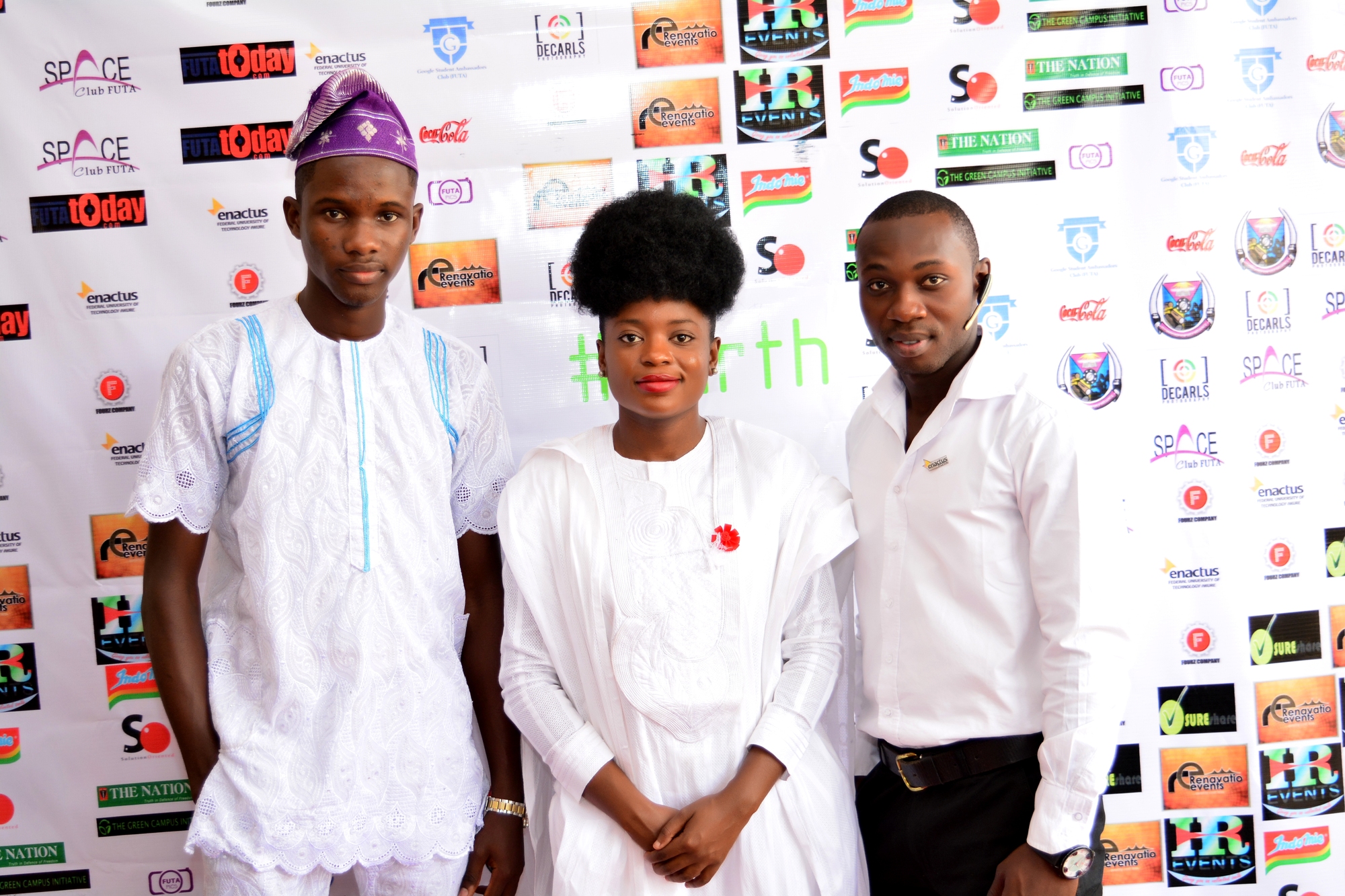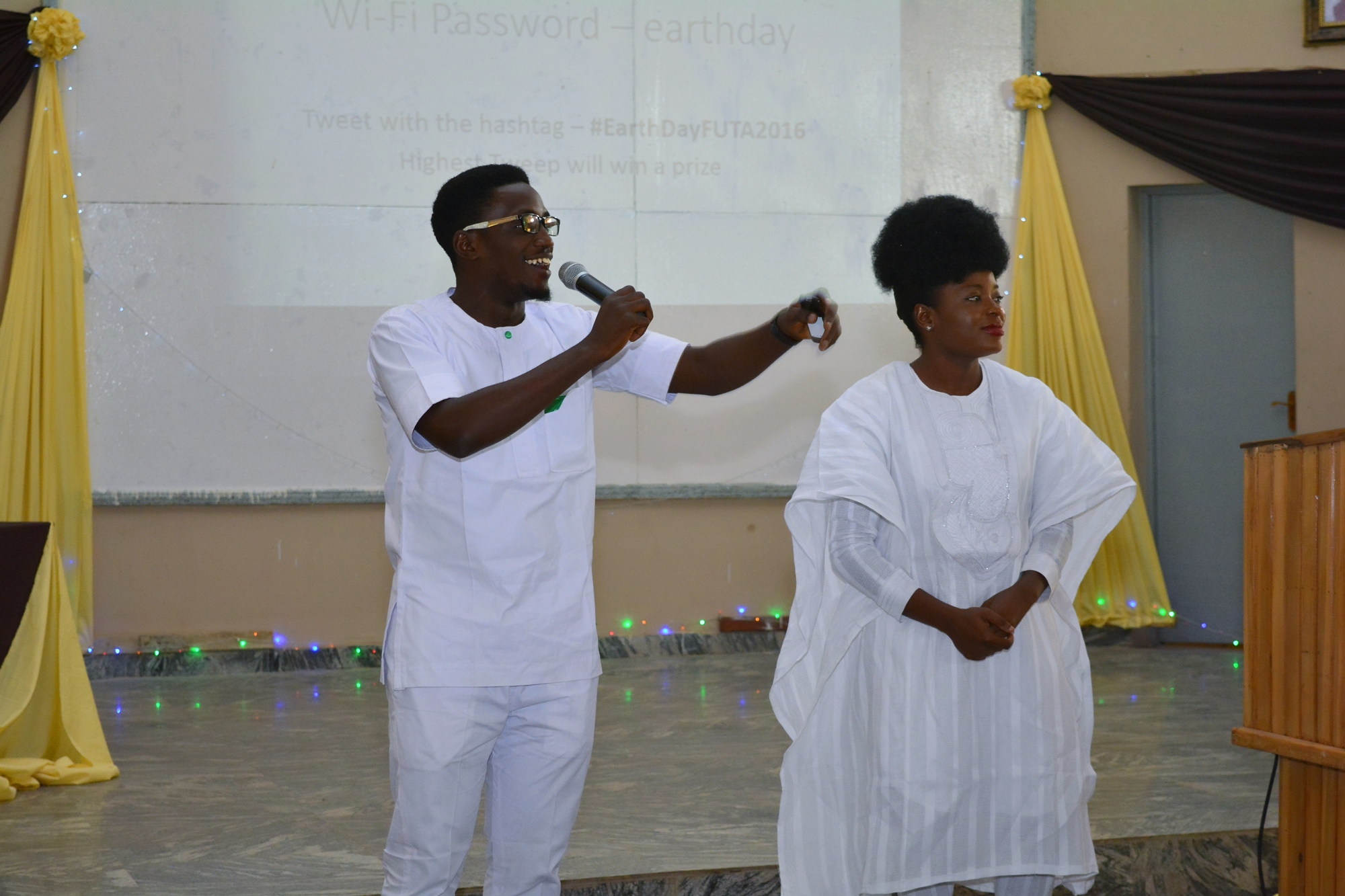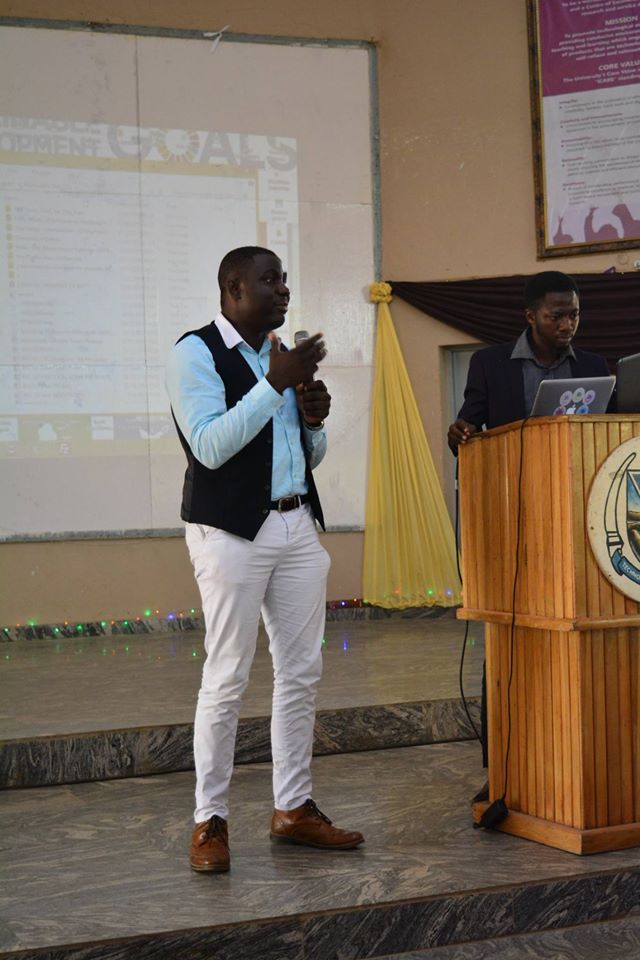Adenike Akinsemolu showed the audience, which comprised of primary school pupils, secondary school students, university undergraduates, and young professionals from around the region, simple and creative solutions that will help sustain earth and influence people. Some of these included: commuting green, raising eco-conscious kids, social entrepreneurship, investing in organic foods and products etc. Toluwanimi Kolawole continued the session by sharing knowledge on parts of the planet such as people, resources, and systems which are finite. He discussed the relationships between these element and, how anthropogenic activities influence the climate, and problem solving or critically thinking skills.
Also, the panel discussion and product and invention exhibition made the event special. Interesting questions were raised and discussed. One of such questions raised by a female undergraduate student of Industrial Design was on how art could be used to minimize climate change. One of the panellist, a Ghanaian and Team Lead of The Conservative; Mr Thomas Koffi Aboh emphasized that recently, art has become an important tool in reducing the effect of climate change. He went ahead and showed The Conservative eco-friendly products such as bags and caps all of which are made from local materials. Other panellists were, Olayinka Ojo; the Green Campus Initiative Minister for Innovation and Social Entrepreneurship, and also the Winner of the UN Spoken for Word Contest, Owoeye Josaiah Abolade; an Environmental Pollution PhD candidate, and Daniel Trump from the University of Edinburg.
Several teams, including The Conservative and Earthplus Africa from Obafemi Awolowo University, exhibited great ideas and products that are mitigating climate change.
Top Dignitaries of the University present at the event were the Dean of Students Affairs and First Bank Nigeria Professorial Chair in Computer Science; Prof. B. K. Alese, who also represented the Vice Chancellor of the University; Prof G. A. Daramola, the University Registrar; Dr. Mrs M. Ajayi, and Director of CESRA (Centre for Space Research and Applications), FUTA; Prof. J. O. Akinyede.
The Earth Day Event at FUTA was different from other green campaigns or activities because it did not just create awareness, but because it was a platform for sharing ideas and exhibiting various projects and innovations working to mitigate climate change. Attending this event alongside other team members from the Green Campus Initiative was worthwhile to me. The outcome has already started to be felt among other participants. This event should be held every year across campuses in Nigeria as this is a sure way of ensuring sustainability. Check out the pictures below:




